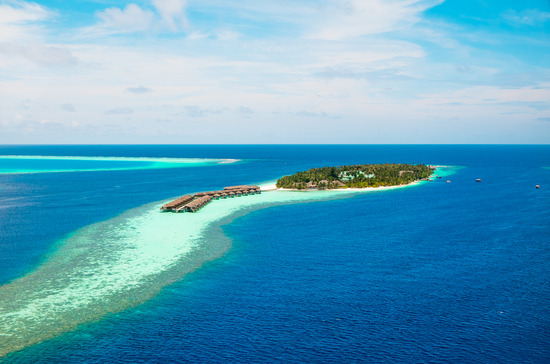Maldives has had a tactical meaning because of its location on the major marine routes of the Indian Ocean. Maldives’ nearest neighbors are Sri Lanka and India, both of which have had cultural and monetary ties with Maldives for centuries.
Maldives gained total independence from the British in 1965. However, they continued to maintain an air base on the island of Gan in the southernmost atoll until 1976. The British departure in 1976 at the height of the Cold War almost immediately triggered foreign speculation about the future of the air base.
Apparently the Soviet Union made a move to request the use of the base, but the Maldives refused. The earliest written history of the Maldives is marked by the arrival of Sinhalese people, who were descended from the exiled Magadha Prince Vijaya from the ancient city known as Sinhapura.
He and his party of several hundred landed in Sri Lanka, and some in the Maldives circa 543 to 483 BC. According to the Mahavansa, one of the ships that sailed with Prince Vijaya, who went to Sri Lanka around 500 BC, went adrift and arrived at an island called Mahiladvipika, which is the Maldives. It is also said that at that time, the people from Mahiladvipika used to travel to Sri Lanka.
The Maldives was the first landfall for traders from Basrah, sailing to Sri Lanka or Southeast Asia. In the Maldives, ships could take on fresh water, fruit and the delicious, basket-smoked red flesh of the black bonito, a delicacy exported to Sindh, China and Yemen.
The people of the archipelago were described as gentle, civilized and hospitable. They produced brass utensils as well as fine cotton textiles, exported in the form of sarongs and turban lengths. These local industries must have depended on imported raw materials.
In 1959, objecting to Ibrahim Nasir’s centralism, the inhabitants of the three southernmost atolls protested against the government. They formed the United Suvadive Republic and elected Abdullah Afeef as president and chose Hithadhoo as capital of this republic.
However, political infighting during the ’70s between Nasir’s faction and other political figures led to the 1975 arrest and exile of elected prime minister Ahmed Zaki to a remote atoll.
Economic decline followed the closure of the British airfield at Gan and the collapse of the market for dried fish, an important export. With support for his administration faltering, Nasir fled to Singapore in 1978, with millions of dollars from the treasury.

Bird’s-eye view. Maldives Indian Ocean
The period of the British protectorate began in 1887. The Sultan remained head of state. There was no British Governor or representative and Britain did not interfere in the country’s internal affairs, confining its interest to foreign affairs and defence.
The Maldivian sultanate became elective after 1932. The recent history of Maldives has been characterised by stability, growth and gradual adjustment to a modern economy. The only interruption to this steady progress was an attempted coup in late 1988, involving an attempted invasion.
This was quickly put down with the aid of Indian troops. In the early 1990s, President Maumoon Abdul Gayoom devolved some presidential powers, introduced other reforms and established an anti-corruption board.